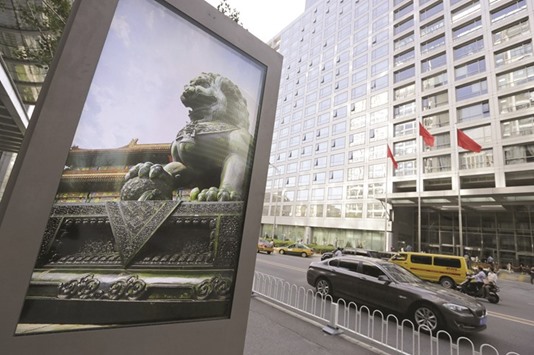China will allow more companies to list on its stock market to boost support for its economy, the nation’s top securities regulator said, dismissing concerns that more supplies of shares can depress the market.
The capital market’s recovery from a 2015 rout has been stronger than expected and is now ready for “appropriately” larger supplies of initial public offerings, China Securities Regulatory Commission Chairman Liu Shiyu said Sunday in Beijing, citing a “mainstream” view. The regulator’s faster approval of IPOs last year had been “welcomed” by the market, he said, adding that the effects from previous practices of slowing or suspending share sales amid market downturns have proven “not good.”
“The entry of new companies can increase market liquidity and can attract additional capital,” Liu told reporters. “As investment value increases, confidence of the entire society strengthens.”
While quickening IPOs as the market recovers from its $5tn rout in the summer of 2015, the regulator this month also announced new curbs on additional fundraising by listed companies. Stability, which was the highest expectation among market participants last year, remains a key objective this year although the CSRC would also aim to make new progress and “new breakthroughs” in reforms, Liu said, without elaborating.
The government plans to “gradually increase” foreign companies’ stakes in their local securities and futures joint ventures, Fang Xinghai, a vice chairman of the CSRC, said at the same briefing, without providing more details. Regulators will also allow more overseas industrial companies into China’s commodities futures market to improve pricing, he said.
Chinese regulators, who clamped down on markets during the stock rout, are slowly warming to reforms as volatility subsides. Over the past three months, authorities opened the Shenzhen-Hong Kong exchange link and said they’ll push ahead with a trial for more exchange-traded fund options and pledged to increase the pace of initial public offerings.
More than 600 companies are seeking approval for first-time share sales, Fang said during a panel discussion last month at the World Economic Forum in Davos, Switzerland. The CSRC approved 280 IPO applications last year, when 248 companies completed such sales, Liu said on Sunday without providing year-earlier comparisons.
The number of shares issued in private placements can’t be more than 20% of a company’s total shares, the CSRC told reporters on Feb. 17.
Non-financial companies seeking a share sale shouldn’t have a large balance of longer-term financial investments such as assets for trading or funds lent to others, the CSRC said, though it didn’t provide more details.
At the briefing, Liu also stepped up his criticism of “financial crocodiles” that “cruelly” infringe on the interest of small stock investors. In a public speech in December, he slammed unidentified leveraged stock acquirers as “robbers,” shortly before the nation’s insurance regulator announced penalties on two insurers that had been among the most aggressive investors in the stock market.
“In the capital market, being a financial mogul is only half a step away from being a financial crocodile,” he said. Any illegal behaviour in the market would leave traces behind, which, “no matter they’re historical or current,” will be pursued by regulators, Liu said.
The China Insurance Regulatory Commission on Friday escalated its crackdown on “radical” investment behaviour, banning Yao Zhenhua, chairman of Foresea Life Insurance Co, from the industry for 10 years, one day before announcing restrictions on stock investments of Evergrande Life Insurance Co. Both companies were involved in a tussle of control for developer China Vanke Co.

An advertising board (left) showing a Chinese stone lion pictured near an entrance to the headquarters (right) of China Securities Regulatory Commission (CSRC), in Beijing. China will allow more companies to list on its stock market to boost support for its economy, the nation’s top securities regulator said, dismissing concerns that more supplies of shares can depress the market.
